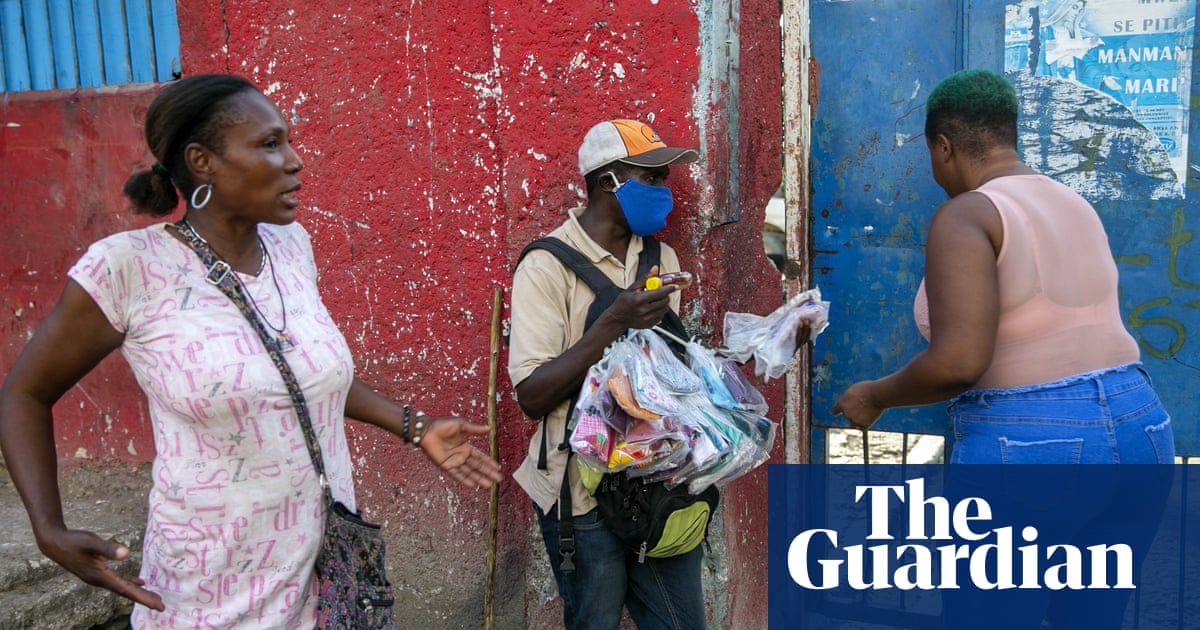
Haiti does not have a single vaccine to offer its more than 11 million people for a year after the start of the pandemic, which raises concerns among health experts that the welfare of Haitians is being neglected. as violence and political instability across the country deepen.
To date, Haiti is expected to receive only 756,000 doses of the AstraZeneca vaccine through a United Nations program aimed at ensuring that the most needy countries receive shots of Covid-19. Free doses were expected to arrive in May at the latest, but a delay is expected because Haiti missed a deadline and the key Indian manufacturer is now prioritizing an increase in domestic demand.
“Haiti has recently completed some of the essential documentation that are prerequisites for processing a shipping order,” said Gavi, the Vaccine Alliance, a Geneva-based public-private partnership that co-manages the effort. of Covax supported by the UN.
The country also did not request a pilot program in which it would have received some of the doses allocated prematurely, according to the Pan American Health Organization. However, a spokeswoman congratulated her other efforts on pandemic, including strengthening hospital readiness.
Meanwhile, a human rights research center cited in a new U.S. State Department report found that the Haitian government had misappropriated more than $ 1 million in coronavirus aid. The report also accused government officials of spending $ 34 million on “the greatest opacity,” avoiding an agency tasked with approving state contracts.
Lauré Adrien, director general of the Haitian Ministry of Health, blamed the delay on the vaccine for examining AstraZeneca’s traits and is concerned that the country does not have the necessary infrastructure to ensure proper storage of the vaccine, and he added that his agency prefers a single-dose vaccine. AstraZeneca requires two doses.
“It’s no secret that we don’t have excellent conservation facilities,” he said. “We wanted to make sure we had all the parameters checked before we received vaccine stocks.”
Adrien also noted that all the money his agency received has been spent properly, but said he could not speak for other agencies. A presidential spokesman did not return calls for comment.
Many poorer countries have experienced long waits for vaccines against Covax as richer countries got supplies, although most have received at least one initial shipment. Some took matters into their own hands, getting shot through donations and private deals.
The lack of vaccines in Haiti occurs as it reports more than 12,700 cases and 250 deaths, figures experts believe are underreported.
Ongoing protests and the rise of gang-related kidnappings and killings are wondering how any vaccine will be administered given the lack of stability along with a growing number of people who are afraid to leave their homes.
Perceptions also remain a major challenge.
Although face masks are mandatory for Haitian companies, airport closures and curfews have long been lifted, and other precautions are rare.
“People don’t really believe in the coronavirus,” said Esther Racine, a 26-year-old mother of two boys whose father died in the catastrophic 2010 earthquake.
Racine once worked as a maid, but began selling face masks at the start of the pandemic, which generated a quick business with about 800 sales a month. Now, it barely sells 200.
“Look around you,” he said, gesturing to a maskless crowd boiling around him in downtown Port-al-Prince. The only current customers are those who need a mask to walk into a nearby grocery store, he said, adding that Haitians have other problems in their heads: “People care more about violence than the virus.”